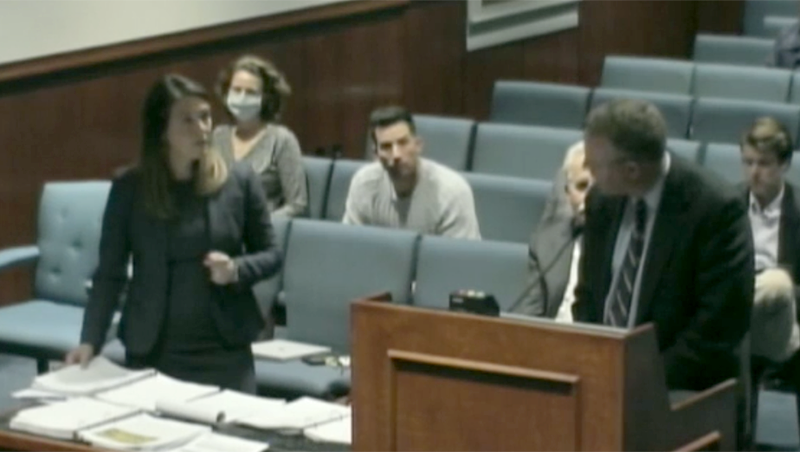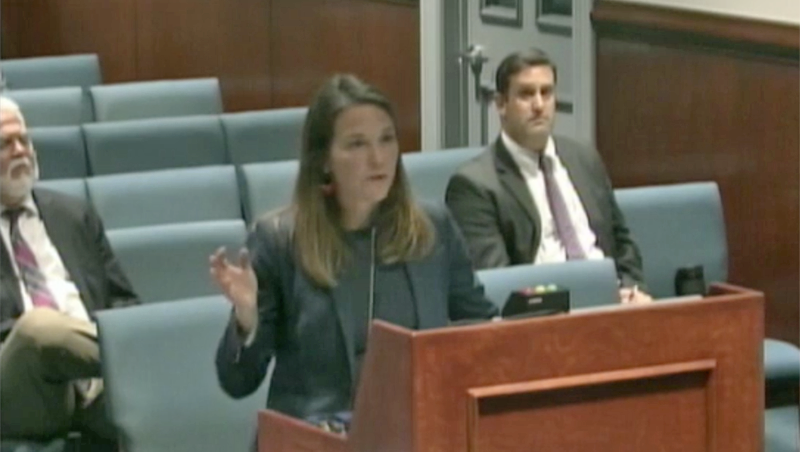Currituck commissioners burn the midnight oil discussing school capacity amid development requests
Published 6:39 am Monday, January 10, 2022
|
Getting your Trinity Audio player ready...
|
Currituck commissioners held a marathon meeting until almost midnight December 20, primarily listening to public hearings for special use permits for Flora Farms and Fost developments, ultimately deciding to table both decisions until the January 3 meeting.
Major concerns for both projects were school capacity and wastewater service.
Flora Farms, located in Moyock, requested a preliminary plat/special use permit for a phased approach to build 277 residential units beginning in June 2022.
Attorney for the applicant, Jamie Schwedler, called expert witnesses to address concerns, making a case that the county can accommodate additional development.
Jonathan Wells, a certified planner, made a distinction between school capacity the county’s ability to provide adequate public school facilities. “The operative word is ability,” Wells said. “It isn’t always simple, but if it’s able, it should be considered.”
Wells stated that there are a number of options available to districts when the number of students exceeds stated capacity: the use of mobile classrooms; scheduling variations/multitrack scheduling that could accommodate up to 30% more students; shifting grades (for example moving a grade to a different school with more room); building additional classroom space; or simply continuing to operate above capacity. In his opinion, Currituck is able to offer adequate public facilities for the Flora Farms development.
When called as a witness, Superintendent Matthew Lutz said that he does not consider mobile classrooms as part of school capacity numbers, though Wells did count mobile classrooms as an allowable option for counties to provide adequate public facilities.
For many residents, even more concerning than school capacity is the additional strain on wastewater facilities.
Resident Jenna Kehoe implored commissioners to put a moratorium on Flora or any subdivision that may be attached to the Eagle Creek sewer system. Green View residents have faced two years of wastewater disruptions, causing raw sewage backups in homes, driveways and streets. “There is raw sewage in this neighborhood. I know you say you’re powerless, but you’re not. The 420 families that live there right now, this is a great opportunity to step in and say [to developers] you cannot use your system until the entire system is fixed,” Kehoe said.
Expert witness Mike Myers explained sewer system design and construction, and the difference between collection system and the plant. Problems for Green View residents have to do with the plant, which is currently undergoing repairs.
Myers stated that that the Eagle Creek collection system has no impact on the operation of the plant.
Commissioner Selina Jarvis made a motion to deny the preliminary plat/special use permit; commissioner Kitty Etheridge seconded. The motion failed. Commissioner Bob White then made a motion to table the issue until the next meeting to allow time to “digest the information” and make an informed decision. The motion passed.
The second public hearing for Fost, phases 6-9, preliminary plat/special use permit for 178 dwelling units in Moyock on the west side of Caratoke Highway across from Guinea Road, involved many of the same key witnesses. The major issue was the school capacity of Shawboro Elementary. Phases 6-9 are expected to generate 44 students. However, committed capacity from phases 1-5 must be added to the total number of students, which would mean that the school will serve an estimated 729 students, equaling 110 percent capacity if the special use permit for phases 6-9 is approved.
Wells said that number could be a challenge, but that the county could still adequately provide at 110 percent capacity.
Jarvis disagreed. “Operating over capacity, I know what that’s like as a teacher . . . that’s taxing on everyone that’s in the school and is operating in the school.”
Schwedler continued to push her case to commissioners, affirming expert witnesses that the plan does not exceed the county’s ability to provide adequate public facilities.
Commissioners again tabled the issue until the January 3 meeting.









